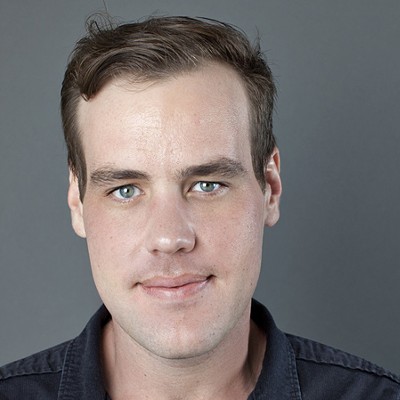Almost 12 years ago, Major League Soccer announced it was shuttering the financially faltering Miami Fusion. Fast-forward to today, and sometime in the next 24 hours the league is expected to announce it's officially re-entering the market with a David Beckham-owned team.
Back on that fateful January 2002 day, Commissioner Don Garber and the Fusion's lead investor, Ken Horowitz, laid out in no uncertain detail why they thought the Fusion failed and why South Florida was such a dismal soccer market. Now is as good a time as any to revisit those points and see if anything has really changed.
"We've come to the conclusion that the South Florida market just has too many hurdles that we simply cannot overcome," Horowitz said in that teleconference. Here were his points:
1. "The reality is that South Florida is a very difficult sports market. In recent years, teams have opened and shut doors within a year. Even the established professional sports teams -- the Marlins, the Heat, and the Panthers -- are all suffering. The Miami Dolphins routinely need to black out televised games from local broadcasts because they haven't been able to fill their stadium on a regular basis."
Well, actually the Dolphins weren't routinely blacking out games then. They haven't since 2000. Now and then, the team and the local CBS affiliate routinely buy up the remaining tickets to avoid a blackout.
True, the Dolphins, Marlins, and Panthers all still suffer with disappointing turnouts, but the Heat's attendance (which was never quite as dire as that of the other three teams, anyway) picked up in 2005 and has remained in the top 10 of the NBA for all but two seasons. Which at least proves Miamians will turn out for a team they can actually get excited about. Beckham's name alone might not sustain long-term success, but it is a nice buoy during the early seasons.
2. "The fan base is very diverse down here, and many people simply don't have local ties to the area and have trouble identifying with the local sports teams. They typically identify more with the teams from states or countries they might have come from."
This is a two-part issue really.
First, the domestic imports. Sure, there are lots of people who are, for example, (tragically) Jets fans here in Dolphinsville, but they grew up with allegiances to teams that have existed since the '50s. MLS, certainly then and to a certain degree still now, is a relatively new endeavor as far as American major-league sports go. New York natives who have been living down here for 20 years don't have a connection to the Red Bulls to the same extent they have to the Jets or Giants, and that was something MLS couldn't figure out how to take advantage of then. Let's hope they figure it out with this team.
Then there's the issue of the immigrant population. Last time we checked, though, it's not exactly like Cubans are rooting for the Cuban national team.
Foreigners were also accustomed to a higher quality of play than what MLS had to offer then. If you, Miami Heat fan, got your dream job in Paris and moved halfway around the world, would you buy tickets to see Paris-Levallois Basket take on Olympique Antibes? No, because what the hell does that even mean? It'd be like eating steak for years and then being forced to settle for a McDonald's dollar-menu cheeseburger.
Now, of course, MLS play is a bit more respected, and the designated player rule, AKA "the Beckham rule," makes it easier for teams to sign superstar players from abroad. Attract a few South American superstars to end their careers in Miami, and you might have more of a recipe for success.
3. The timing of the MLS season in contrast to when youth soccer is played down here. Youth soccer plays at an opposite time from when MLS plays and it makes it difficult for youth coaches and their players to attend Fusion games because they have gone on to another sport.
Well, OK, we guess that's still a problem. Can't win 'em all.
4. "We also have problems with the local heat and rain during the summer. The Marlins have been trying to have a domed stadium built to take care of that problem, and it's been an ongoing problem for us."
As it turns out, the Marlins' domed stadium didn't really help much with their attendance problems, but perhaps if Beckham builds a domed stadium and doesn't screw taxpayers in the process, he might have different results.
5. "Yes, we had an increase in attendance, but it simply wasn't enough. We had no increase in corporate sponsorship." Added Garber: "[Miami] had almost no revenue from corporate sponsorships."
Beckham is bringing on a much stronger and savvier ownership group (that might or might not include LeBron James) and shouldn't have as much trouble getting corporate sponsors. We can't wait for H&M underwear night.
6. Garber: "I don't believe it's a Fort Lauderdale versus Miami issue. I never did believe that."
Probably one of the oddest realities of the future is that while the team carried the name "Miami," it played in Broward County -- not even by the county line, but smack dab in the middle of the northern part of the county. And not even in a particularly nice area, but right next door to Fort Lauderdale Executive Airport. For a large part of Miami, that's an hourlong trip.
The exact location of Beckham's stadium hasn't been revealed, but all signs point to it being built somewhere in Miami's urban core.
Follow Miami New Times on Facebook and Twitter @MiamiNewTimes.











